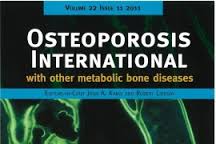Papers
Heeft u een paper die u graag onder de aandacht wilt brengen van onze leden, dan kunt u een mail sturen via de contactpagina.
A p300 and SIRT1 Regulated Acetylation Switch of C/EBPa Controls Mitochondrial Function
Cell Press | 9 januari 2018 | Summary Cellular metabolism is a tightly controlled process in which the cell adapts fluxes through metabolic pathways in response to changes in nutrient supply. Among the transcription factors that regulate gene expression and thereby cause changes in cellular metabolism is the basic leucine-zipper (bZIP) transcription factor CCAAT/enhancer-binding protein alpha (C/EBPa). Protein lysine acetylation is a key post-translational modification (PTM) that integrates cellular metabolic cues with other physiological [...]
Plasticity of lifelong calorie-restricted C57BL/6J mice in adapting to a medium-fat diet intervention at old age
Aging Cell | 23-09-2017| Summary Calorie restriction (CR) is a dietary regimen that supports healthy aging. In this study, we investigated the systemic and liver-specific responses caused by a diet switch to a medium-fat (MF) diet in 24-month-old lifelong, CR-exposed mice. This study aimed to increase the knowledge base on dietary alterations of gerontological relevance. Nine-week-old C57BL/6J mice were exposed either to a control, CR, or MF diet. At the age of 24 [...]
Prolonged high-fat diet induces gradual and fat depot-specific DNA methylation changes in adult mice
Scientific reports | 03-03-2017 | Abstract High-fat diets (HFD) are thought to contribute to the development of metabolism-related diseases. The long-term impact of HFD may be mediated by epigenetic mechanisms, and indeed, HFD has been reported to induce DNA methylation changes in white adipose tissue (WAT) near metabolism related genes. However, previous studies were limited to a single WAT depot, a single time-point and primarily examined the pre-pubertal period. To define dynamic DNA [...]
Growing more positive with age: The relationship between reproduction and survival in aging flies
Experimental Gerontology | April 2017 | Abstract Populations of laboratory animals that are selected for increased lifespan often show negative correlated responses in early fecundity. However, late fecundity and/or total lifetime fecundity can be higher in the populations selected for increased lifespan. This has been interpreted by some as being at odds with the disposable soma theory, which predicts decreased lifespan to increase total reproductive output. Alternatively, the Y–model explores the effects of variation [...]
Dietary acid load, trabecular bone integrity, and mineral density in an ageing population: the Rotterdam study
Osteoporosis International: with other metabolic bone diseases | 12-04-2017 | Abstract We studied the relation between a diet that is high in acid-forming nutrients (e.g. proteins) and low in base-forming nutrients (e.g. potassium) and bone structure. We showed a negative relation, which was more prominent if proteins were of animal rather than of vegetable origin and if intake of dietary fibre was high. Introduction: Studies on dietary acid load (DAL) and fractures have [...]
Protein-enriched familiar foods and drinks improve protein intake of hospitalized older patients: A randomized controlled trial
Cilincal Nutrition | 12-05-2017 | Abstract Background & aims: Adequate protein intake is important in preventing and treating undernutrition. Hospitalized older patients are recommended to consume 1.2e1.5 g of protein per kg body weight per day (g/kg/d) but most of them fail to do so. Therefore, we investigated whether a range of newly developed protein-enriched familiar foods and drinks were effective in increasing protein intake of hospitalized older patients. Methods: This randomized controlled [...]
The Dietary Approaches to Stop Hypertension Diet, Cognitive Function, and Cognitive Decline in American Older Women
JAMDA | 01-06-2017 | Abstract Objectives: To examine the association between long-term adherence to the Dietary Approaches to Stop Hypertension (DASH) diet with cognitive function and decline in older American women. Design: Prospective cohort study. Setting: The Nurses’ Health Study, a cohort of registered nurses residing in 11 US states. Participants: A total of 16,144 women from the Nurses’ Health Study, aged _70 years, who underwent cognitive testing a total of 4 [...]
Dose response effects of supplementation with calcifediol on serum 25-hydroxyvitamin D status and its metabolites: A randomized controlled trial in older adults
Clinical Nutrition | 26-03-2017 | Abstract Background & aims: Oral supplementation with vitamin D is recommended for older adults to maintain a sufficient 25-hydroxyvitamin D (25(OH)D) status throughout the year. While supplementation with vitamin D2 or D3 is most common, alternative treatment regimens exist which require further investigation with respect to increasing 25(OH)D concentration. We investigated the doseeresponse effects of supplementation with calcifediol compared to vitamin D3 and assessed the dose which results [...]
Activation-Induced Autophagy Is Preserved in CD4+ T-Cells in Familial Longevity
The Journal of Gerontology | 09-05-2017 | Abstract As with many other tissues and organs, the immune system is also affected by age. Immunosenescence is characterized by a decreased ability of immune cells to mount a productive response upon exposure to new antigens. Several studies have reported that members of families with exceptional longevity show improved immune function, which might contribute to the increased life- and health-span observed in those families. Autophagy is [...]
Cellular senescence drives age-dependent hepatic steatosis
Nature Communications | 13-06-2017 | Abstract: The incidence of non-alcoholic fatty liver disease (NAFLD) increases with age. Cellular senescence refers to a state of irreversible cell-cycle arrest combined with the secretion of proinflammatory cytokines and mitochondrial dysfunction. Senescent cells contribute to age-related tissue degeneration. Here we show that the accumulation of senescent cells promotes hepatic fat accumulation and steatosis. We report a close correlation between hepatic fat accumulation and markers of hepatocyte senescence. The [...]












